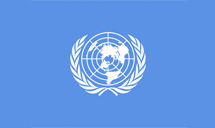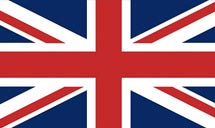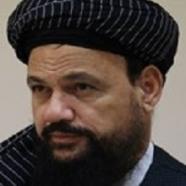Overview
Mullah Abdul Latif Mansoor is a U.N.-sanctioned Taliban senior leader who served as the minister of agriculture under the first Taliban regime in the 1990s.“ABDUL LATIF MANSUR,” United Nations, January 31, 2001, https://www.un.org/securitycouncil/sanctions/1988/materials/summaries/individual/abdul-latif-mansur. Following the Taliban’s takeover of Afghanistan in August 2021, Mansoor was named minister for water and power of the Taliban government.“Taliban forms 33-member cabinet in Afghanistan: Full list,” Hindustan Times, September 8, 2021, https://www.hindustantimes.com/world-news/taliban-forms-33-member-cabinet-in-afghanistan-full-list-101631066722518.html.
A member of the Sahak tribe, Mansoor is a veteran of the Taliban movement. Mansoor served as the minister of Agriculture under the first Taliban regime from the 1990s until 2001.“ABDUL LATIF MANSUR,” United Nations, January 31, 2001, https://www.un.org/securitycouncil/sanctions/1988/materials/summaries/individual/abdul-latif-mansur. Given Mansoor’s role within the Taliban, the United Nations Security Council sanctioned Mansoor on January 31, 2001, and the U.K. Office of Financial Sanctions Implementation sanctioned Mansoor on April 2 of that year.“ABDUL LATIF MANSUR,” United Nations, January 31, 2001, https://www.un.org/securitycouncil/sanctions/1988/materials/summaries/individual/abdul-latif-mansur; “Consolidated List of Financial Sanctions Targets in the UK,” Office of Financial Sanctions Implementation HM Treasury, February 1, 2021, https://assets.publishing.service.gov.uk/government/uploads/system/uploads/attachment_data/file/957420/afghanistan.pdf.
Following the fall of the Taliban in 2001, in 2007, Mansoor served as a member of the “Miram Shah Shura”—a shura council operated by the Taliban’s more radical Haqqani network in eastern Afghanistan—in May 2007. In 2009, Mansoor was both as a member of the Taliban Supreme Council and Head of the Taliban’s Political Commission. In late 2009, Mansoor was allegedly in charge of the Nangarhar Province. By May 2010, Mansoor was a senior Taliban commander in eastern Afghanistan.“ABDUL LATIF MANSUR,” United Nations, January 31, 2001, https://www.un.org/securitycouncil/sanctions/1988/materials/summaries/individual/abdul-latif-mansur; “Security Council 1988 Committee Amends Eleven Entries on Its Sanctions List,” United Nations, February 14, 2012, https://www.un.org/press/en/2012/sc10542.doc.htm.
On August 6, 2021, the Taliban began an offensive against major Afghan cities with the seizure of Zaranj, capital of Nimruz province.Susannah George and Ezzatullah Mehrdad, “Taliban fighters overrun an Afghan provincial capital for the first time since withdrawal of foreign forces,” Washington Post, August 6, 2021, https://www.washingtonpost.com/world/2021/08/06/afghanistan-taliban-nimruz/. By August 13, the Taliban controlled 17 of Afghanistan’s 34 provincial capitals and more than two-thirds of the country.Rahim Faiez, and Joseph Krauss, “Taliban sweep across Afghanistan’s south; take 4 more cities,” Associated Press, August 13, 2021, https://apnews.com/article/middle-east-taliban-c6c8d4a41c554f36031a8131538d1402. On August 15, Afghan President Ashraf Ghani fled Afghanistan and thousands of Afghans poured into Kabul’s airport as Taliban fighters entered the city. By August 16, the Taliban laid siege to the presidential palace and took complete control of Kabul, after which the Taliban declared the war in Afghanistan had ended.“Taliban declares ‘war is over’ as president and diplomats flee Kabul,” Reuters, August 15, 2021, https://www.reuters.com/world/asia-pacific/talibans-rapid-advance-across-afghanistan-2021-08-10/. The Taliban has claimed that it would take on a more “moderate” approach in their ruling of the country, and that women are allowed to have roles in public life in observance of “Islamic law.”“Factbox: Taliban seek to present a moderate face as they take control in Afghanistan,” Reuters, August 15, 2021, https://www.reuters.com/world/asia-pacific/taliban-seek-present-moderate-face-they-take-control-afghanistan-2021-08-15/.
On September 7, 2021, the Taliban announced the official appointments within their caretaker government. Mansoor was appointed minister for water and power.“Taliban forms 33-member cabinet in Afghanistan: Full list,” Hindustan Times, September 8, 2021, https://www.hindustantimes.com/world-news/taliban-forms-33-member-cabinet-in-afghanistan-full-list-101631066722518.html. The government is exclusively male, with many positions filled with veterans from their hardline movement in the early nineties.Matthieu Aikins and Jim Huylebroek, “Taliban Appoint Stalwarts to Top Government Posts,” New York Times, September 7, 2021, https://www.nytimes.com/2021/09/07/world/asia/taliban-women-protest-kabul-afghanistan.html; Kathy Gannon, “Taliban form all-male Afghan government of old guard members,” Associated Press, September 8, 2021, https://apnews.com/article/middle-east-pakistan-afghanistan-arrests-islamabad-d50b1b490d27d32eb20cc11b77c12c87.
Associated Groups
- Extremist entity
- Taliban
- Read Threat Report
- Type(s) of Organization:
- Insurgent, regional, terrorist, transnational, violent
- Ideologies and Affiliations:
- Deobandi, Islamist, jihadist, Pashtun, Salafi, Sunni, Wahhabi
- Position(s):
- Minister for water and power of the Taliban government
The Taliban seized power in Afghanistan in August 2021 after previously leading a violent insurgency in Afghanistan and Pakistan. The group is closely affiliated with al-Qaeda.
History
United Nations

The United Nations sanctioned Abdul Latif Mansur as an individual associated with the Taliban on January 31, 2001.“ABDUL LATIF MANSUR,” United Nations, January 31, 2001, https://www.un.org/securitycouncil/sanctions/1988/materials/summaries/individual/abdul-latif-mansur.
United Kingdom

The U.K. Office of Financial Sanctions Implementation sanctioned Abdul Latif Mansur on April 2, 2001.“Consolidated List of Financial Sanctions Targets in the UK,” Office of Financial Sanctions Implementation HM Treasury, February 1, 2021, https://assets.publishing.service.gov.uk/government/uploads/system/uploads/attachment_data/file/957420/afghanistan.pdf.
